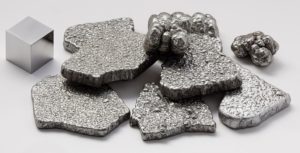In recent years, psychedelic substances have entered the mainstream and many people have begun using Ayahuasca, DMT, psilocybin, peyote, and other “plant medicines” for healing and overcoming traumas. What is the Jewish approach to such psychedelics? What can we learn about them from the Torah, and from the procedures of the kohen gadol on Yom Kippur? How do we address the risks and dangers surrounding these drugs? And is there any connection to avodah zarah or idolatry in ceremonies that make use of these substances? Find out in this fascinating podcast where we also discuss “snake energy” and kundalini, yoga and astronomy, and what role plant medicines might play in the forthcoming Messianic Age.
Tag Archives: Vulcan
Understanding Edom #4: Zepho & Vulcan
What is the significance of Egyptian obelisks erected in major capital cities around the world? Who was Zepho, grandson of Esau, and what is his connection to Rome and Edom? How did the myth of Vulcan originate in an earlier Torah figure? And what does the Soviet Union have to do with it all? Find out in this class as we continue our exploration of Edom and its eye-opening relation to current global events. Plus: Was Christopher Columbus Jewish? Is there a Star of David in the US Great Seal? And is there an “Illuminati” pyramid with all-seeing eye in the Israeli Supreme Court?
For ‘The Secret, Secret Story of Stalin’s Purim Death’ see here.
Israel and the Iron Age
In this week’s parasha, Ekev, Moses describes the rich land of Israel and says it is “a good land, a land with brooks of water, fountains and depths, that emerge in valleys and mountains, a land of wheat and barley, vines and figs and pomegranates, a land of oil producing olives and honey…” This first part of the description is well-known, and the source for the Seven Species of Israel. These are the seven plants that are particularly praiseworthy, and are native to the Holy Land: wheat, barley, grapes, figs, pomegranates, olives, and dates (which were used to make the honey that Moses is speaking of). The Zohar explains that all other species of plants have various angels appointed over them, but God alone oversees the growth and flourishing of the Seven Species (see Zohar Chadash on Ruth, 106a).
 What we often overlook is the next part of Moses description: “a land in which you will eat bread without scarcity, you will lack nothing in it, a land whose stones are iron, and out of whose mountains you will hew copper.” Moses promises the Israelites a land full of iron and copper. This statement is actually just as significant as the Seven Species! What is so special about iron and copper that it was so enticing for Israel? Continue reading
What we often overlook is the next part of Moses description: “a land in which you will eat bread without scarcity, you will lack nothing in it, a land whose stones are iron, and out of whose mountains you will hew copper.” Moses promises the Israelites a land full of iron and copper. This statement is actually just as significant as the Seven Species! What is so special about iron and copper that it was so enticing for Israel? Continue reading
